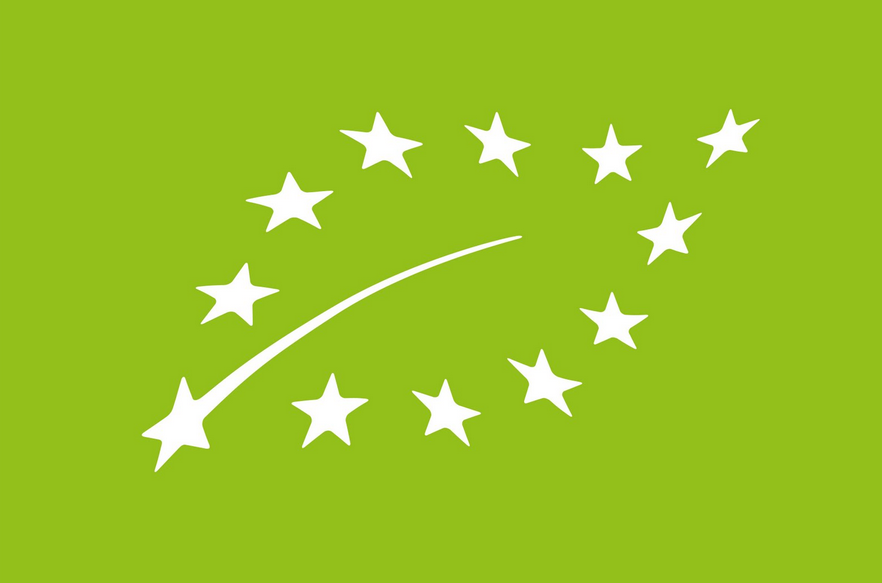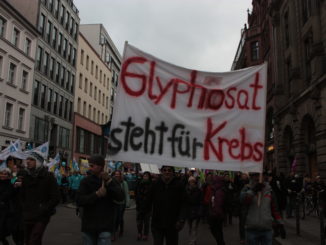Tighter rules for the organic poultry sector, a move towards a risk rather than control based system of regulation, and group certification for small farmers. These are the three most noteworthy recommendations in the EU Commission’s evaluation of the EU legislation on organic farming. So what are the details, and wherein lies the devil?
This evaluation process, which involved consultations including a 45000 person on line survey, will lead to a new overall Organic Regulation.
Recent leaks, from two sources, are also revealing: The UK’s Grocer magazine, following a leak in Der Speigel, points out that various rules may tighten up on organic producers. This may have a double-edged sword effect: it may increase the trust people have in organic food while, at the same time, inhibiting realistic, achievable growth of what is a very small sector. Indeed, imposing extra administrative burdens on an already extremely regulated sector causes profit margins to narrow for farmers and food businesses.
Irish MEP Marian Harkin has also seen the Commission leak. Speaking at the Irish certification body IOFGA’s Conference last week, she said that the preferred option in the leak is the Principle driven option, or stricter rules based on consumer desires.
One cited change is and ending of the rule which allows the growing organic and conventional side by side. Currently, if a farmer can prove the need for this economically, it is allowable. It is also a way for a conventional farmer to start to ‘dabble in’ organic farming. With demand variable in some countries, and growing in others, this may stifle growth in countries with unsure markets. On the other hand, the purity of the organic product is more assured.
Likewise, tightening rules on organic pig and poultry feed would be welcome by almost all involved in organics in principle. However on the ground, farmers have been abandoning these sectors in some countries, such as the UK and Ireland: organic pork or poultry are not even in Ireland’s recently launched Organic Action Plan. While it is a common myth that the rules on organic get weaker as time moves on – sometimes called conventionalisation – on the ground, it is the case that the rules often get stricter. This is because more certified organic inputs become available as the overall sector grows. And this is a justification for the above mentioned changes for poultry, changes which have been happening for years anyway. As the sector developed across Europe the rules on feed ingredients have steadily gotten tighter.
The process of establishing and formalising EU-wide rules has been cited as an important driving force for the development of the organic sector. Everything from increased trade to consumer confidence has been brought on by this process, which began in 1991, and was reworked in 2009.
By and large, the evaluation has found that the organic regulation is working well, and that consumers trust organic. A recurring issue was differences between member states, and lack of clarity in the use of terms, such as ‘sustainable development’, ‘respect for nature’s systems and cycles’, ‘sustainable use’, ‘region’ and ‘factory farming’.
And while there is much to trawl through in this report, production rules, control rules and the sustainable development of the organic sector stood out as containing the most noteworthy changes.
Exceptional Rules. A focus of this Evaluation has been the exceptional rules within the production section. Once you encounter the following phrase in recommendations, you can expect change:
“The system of exceptional rules, established to allow regional differences in climate, stage of sector development and specific husbandry practices to be taken into account, seems to be not fully adequate.”
Some countries have few, some have many. In principle, they are short term but in practice they can become, de facto, ‘the rules’. This is something to be eliminated long term. The question is – how long should this term be?
The primary change recommended for exceptional rules relates to organic chicken.
Here’s the relevant wording in full:
“The exceptional rules for the use of non-organic young poultry consist of two parts: a) use of non-organic chicks (less than 3 days old, currently not time limited) and b) use of part-organic reared pullets (complying with rules on feeding and veterinary treatment inputs but not with those on origin of animals and housing; due to expire on 31 December 2014).
Both exceptional rules are extensively used in all of the case study countries except in Denmark…”
It continues:
“According to stakeholders, the existence of the exceptional rule itself and the lack of an EU standard for pullet-rearing have hampered the development of supplies of entirely organic pullets. It is therefore recommended that provision is made for organic pullet rearing and hatchery at EU level, followed by a phasing out of the exceptional rule on the use of part-organic pullets.”
IFOAM favour a move towards 100% organic ingredients, and have outlined a pathway toward this on page two of this December 2013 letter.
Risk based controls. A move towards risk based controls would be interesting. Here’s what the recommendations say on an organic control system based on risk-assessment:
“To avoid opportunistic behaviour on the part of organic operators and to ensure that control measures are not overly predictable, the control system should adopt a toolbox approach whereby control measures can be applied according to risk, operator type and context. The core element of such an approach is therefore risk-based. This would allow for the identification of low-risk and high-risk operators, thereby creating a more targeted and dynamic approach to the control process. Such a system needs to be developed as a learning system which is able to adapt to changing influences on and challenges for the integrity of organic farming. It is important to bear in mind that such a dynamic approach is not compatible with the static approach of the mandatory annual control visits as currently implemented in the Regulation. To improve the effectiveness of the organic control system, it is therefore recommended that the organic control system is based on risk-assessment.”
This could both make things more efficient/less onerous for producers, and also, at the same time, more rigorous and trustworthy for the consumer.
Group certification. The recommendation that “the introduction of group certification for small producers is considered” is also very noteworthy.
The justification is given as follows:
“On the basis of the limited evidence available, it is clear that the development of the organic sector has the potential to bring social benefits, but effort will be needed to achieve socially sustainable sector development, especially among farming communities with little experience in organic requirements. In some cases conversion in the EU is hampered by the lack of an option for group certification which is available to producers outside the EU.”
This could be very interesting for peasant/small farmers, for groups of farmers using few agri-industrial inputs. Another consideration is – what would this mean for the certification bodies? How would such a thing be regulated, and have consumer confidence? Would it result in cost savings for farmers and consumers alike?
In general, as IFOAM have put it, balance is what’s needed to help grow the organic movement. “IFOAM EU clearly supports a principle driven development of the organic regulation, but emphasises that the development must ensure both increasing consumers trust and feasibility for the sector to comply with strengthened standards”
Many questions, few answers as of yet and an intriguing time ahead, towards the new Regulation.
Read: IFOAM’s recommendations on the EU Commission Consultation, read IFOAM on the principle driven approach.
Find: all the key recommendations in Chapter 14,
Visit: new look EU Commission organic page.
Read: 400+ articles on organic farming and food on Oliver Moore’s blog.






